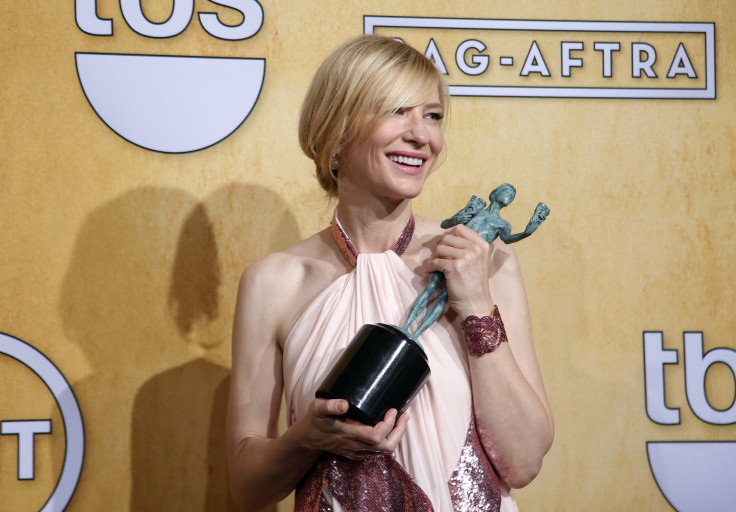Will Cate Blanchett Thank Woody Allen In Her Acceptance Speech? Oscars 2014 Best Actress Nominee In A Tough Spot [PHOTO]

The Academy Awards is expected to be, for the most part, a light-hearted affair. Oscar host Ellen DeGeneres will be cracking jokes, award presenters will deliver some funny one-liners, there will be shots of Oscar attendees smiling for ABC’s cameras.
But Sunday’s 86th Academy Awards may be uncomfortable for Cate Blanchett, the star of the Woody Allen-directed “Blue Jasmine” and heavy favorite to win Best Actress. Blanchett shouldn’t have butterflies about whether she will win the award, but her speech will be among the most highly scrutinized for what she says -- or doesn’t say -- about Allen.
In the run-up to the Oscars, Allen has been dogged by renewed allegations of molestation from Dylan Farrow, one of his adopted children with ex Mia Farrow. Although the claims first surfaced by Mia Farrow more than 20 years ago, his adopted daughter's allegations in the New York Times last month spurred debate as to whether Allen’s work in Hollywood should be recognized (the timing of the open letter was questioned by Allen supporters who pointed out the piece was put out just weeks after Allen received a lifetime achievement award at the Golden Globes) and whether actors should refrain from being in his films. Some have also argued that giving Blanchett the Oscar is tantamount to rewarding Allen despite the allegations (for his part, the director has vehemently denied the claims).
Dylan Farrow also called out Blanchett in the piece for working with Allen, asking, “What if it had been your child, Cate Blanchett?” among a variety of actors and actresses who have collaborated with the accomplished director.
Blanchett gave a diplomatic response to the letter during the Santa Barbara Film Festival.
"It's obviously been a long and painful situation for the family, and I hope they find some resolution and peace," she said at the time.
While “Blue Jasmine” has garnered nominations for a few of the high-profile awards, including Best Actress, Best Supporting Actress (Sally Hawkins) and Best Original Screenplay, Blanchett is the only “Blue Jasmine” nominee expected to take home an award.
All eyes -- or ears -- will be on Blanchett when the envelope for Best Actress is read to see whether she thanks Allen in her acceptance speech. Should she win, she will be in a tough spot, according to public relations professionals.
“If she mentions him, people will be unhappy. If she doesn’t mention him, others will deem her ungrateful,” Hollywood PR guru Howard Bragman told Slate. He told the website that Hollywood insiders, “without mentioning names,” will be the ones upset if Blanchett leaves Allen out of her acceptance speech.
Entertainment PR professional Glenn Selig suggested Blanchett give an acceptance speech that mentions Allen without referencing his embattled personal life. “Something like, ‘Thanks for putting me in this film, this character was so multi-dimensional, nobody but Woody Allen could have written it,’” he told Slate.
So what route will Blanchett take? We’ll have to watch the Oscars to find out.
© Copyright IBTimes 2024. All rights reserved.












